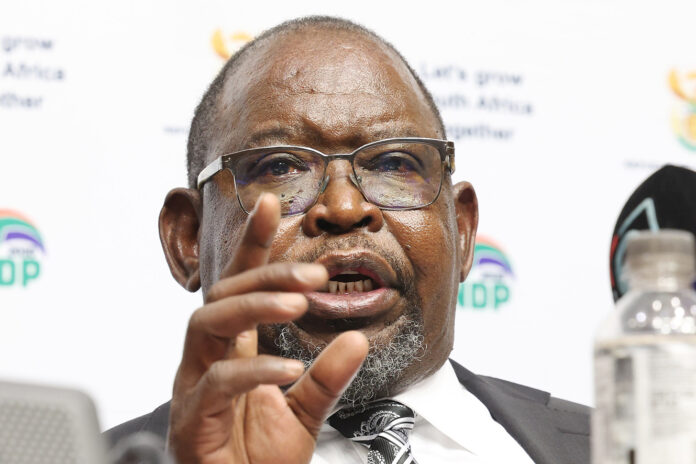The improved value of the rand was one of the clearest indicators that the markets have given the unprecedented postponement of the budget speech the thumbs up.
The rand on Wednesday dropped to R18.58 from R18.33 to the US dollar due to what analysts viewed as uncertainty linked to the postponement of the 2025 Budget Speech.
However, the local currency bounced back to R18.32 on Friday morning, a development which led independent economist Mandla Maleka to assert that the markets were showing confidence in the government of national unity’s decision to postpone the finance minister Enoch Gondongwana’s speech.
“Over the recent days, we have seen the rand improve as well as the bond market. This means that the interest rate on bonds has decreased from 10% to between 9.5% and 9%. This means South Africa’s debt service costs have slightly come down,” said Maleka.
However, he added that a clearer picture of where markets were moving will emerge before March 12, new date for the reading of the Budget Speech.
“The market is saying this is a good thing and the government of national unity is working, and the ANC is no longer a dominant party within government, and therefore the markets are going to reward the government.
“All market indicators are favourable: the bond market, money market, commodities and exchange rate are all positive.
“More bondholders are coming to the market because they want to hold South African bonds because it shows us that the government is no longer dictatorial; it’s not a one-party government and the GNU is working, and everyone now wants SA bonds and the rate is going to be lower. This shows that the government is functioning and it’s not dysfunctional.”
The Budget Speech was postponed from February 19 to March 12, mainly due to disagreements within GNU partners over the two-percentage-point increase in value-added tax. This would have seen VAT rise to 17%, resulting in hikes in prices of food and services.
“The GNU is saying that this budget we are all drafting together and before it’s presented to parliament, all the coalition partners must have a view of this budget. In the past, it was only the ANC that pushed through the national budget. Now things have changed since the ANC won only 40% of the votes.”
Maleka said postponing the budget saved the ANC blushes because opposition parties that are not part of the GNU also did not support it.
Another economist, Duma Gqubule, said when former finance minister Malusi Gigaba increased the VAT from 14% to 15% in February 2018, the National Treasury raised concerns that the tax increase did not deliver the anticipated revenue.
“This is due to the fact that increasing tax in a weak economy has negative feedback into GDP growth, consumption spending and tax revenue. This means by increasing tax, the economy grows less because goods are going to be more expensive,” said Gqubule.
He questioned why the Treasury was going against its evidence by wanting to increase VAT.
“What’s also surprising is that other national treasuries would warn members of the public about a year in advance if it wanted to change the tax policy. Previously, panels were even appointed to look into tax hikes, and they signalled before that they were thinking of raising taxes.
“So, now why is this decision coming all of a sudden?”
Gqubule was also baffled on why Treasury did not consult the cabinet earlier on the proposed tax hike. “This additional R180-billion that the government was planning to raise over this VAT hike was not going to have an impact on the economy.”
“Tax increases don’t grow the economy and they should be off the table and the same applies to spending cuts. On March 12, we need a growth budget.”



